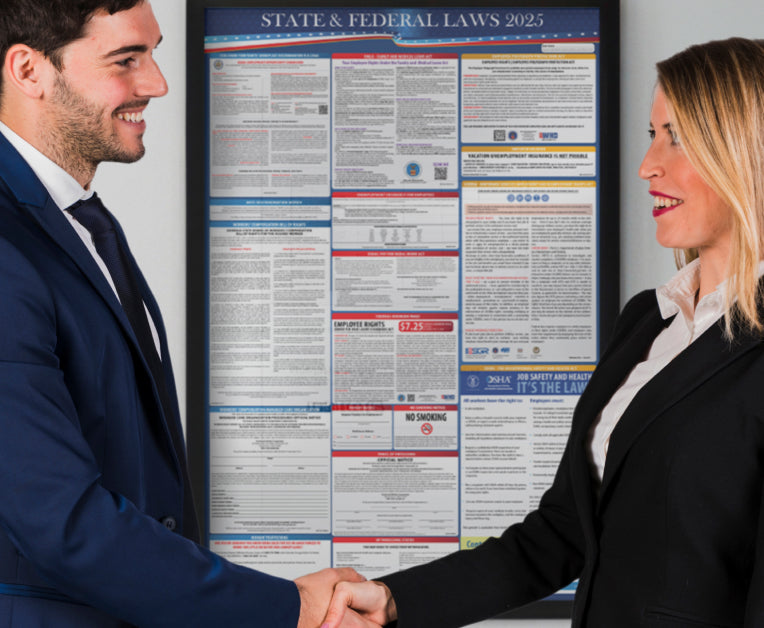
California Labor Law Poster Updates Employers Must Know
As of January 1, 2025, California has implemented several significant changes to its labor laws, impacting all employers within the state. These updates necessitate immediate attention to ensure compliance and avoid potential penalties. Understanding these changes is crucial for maintaining a lawful and transparent workplace.
1. Minimum Wage Increase
Effective January 1, 2025, California's statewide minimum wage has increased to $16.50 per hour for all employers, regardless of the number of employees. This adjustment reflects the state's commitment to improving the standard of living for workers. Employers must update their payroll systems and ensure that all employees are compensated accordingly.
2. Paid Family Leave Adjustments
Under Assembly Bill 2123, effective January 1, 2025, employers are prohibited from requiring employees to use paid vacation before utilizing California's Paid Family Leave (PFL) benefits. This change aims to provide employees with more flexibility and access to their leave entitlements without depleting their accrued vacation time.
3. Freelance Worker Protections
Senate Bill 988 introduces new requirements for contracts with freelance workers. Effective January 1, 2025, hiring entities must provide written contracts to freelance workers, detailing the services to be provided, compensation terms, and payment schedules. This legislation seeks to ensure fair treatment and clarity in freelance engagements.

4. Whistleblower Rights Notice
Assembly Bill 2299 mandates that employers post a new notice outlining employees' rights and responsibilities under whistleblower laws. This notice, effective January 1, 2025, is designed to inform employees of their rights to report unlawful activities without fear of retaliation.
5. Workers' Compensation Rights Update
Assembly Bill 1870 requires employers to include information in workers' compensation notices, informing injured employees of their right to consult an attorney for advice. This update ensures that employees are aware of their legal rights and options following a workplace injury.
6. Captive Audience Meetings Law
Senate Bill 399 prohibits employers from holding mandatory meetings to discuss religious or political matters, including unionization. Effective January 1, 2025, this law aims to protect employees from coercion and ensure their right to make independent decisions regarding union membership and political beliefs.
7. Jury, Court, and Victim Time Off
Assembly Bill 2499 expands the list of crimes for which employees can take time off to assist family members who are victims of specified crimes. It also permits the use of state-paid sick leave for these purposes, effective January 1, 2025. Employers must update their policies to reflect these changes.
8. Driver's License Discrimination Ban
Senate Bill 1100 makes it unlawful for employers to include a statement in job advertisements or applications requiring a valid driver's license unless it is essential for the job duties. Effective January 1, 2025, this law aims to prevent discrimination against individuals who do not possess a driver's license but are otherwise qualified for the position.
9. Intersectionality in Discrimination Laws

Senate Bill 1137 amends the Unruh Civil Rights Act and the California Fair Employment and Housing Act to prohibit discrimination based on the intersectionality of two or more protected traits. Effective January 1, 2025, this law ensures broader protection against discrimination in the workplace.
10. Social Compliance Audit Reporting
Assembly Bill 3234 requires employers that have voluntarily subjected themselves to a 'social compliance audit' to determine if child labor is involved in their operations to post a clear and conspicuous link on their website to a report detailing the findings. Effective January 1, 2025, this law promotes transparency and accountability in business practices.
Compliance Checklist for Employers
To ensure compliance with the 2025 California labor law updates, employers should:
- Review and update all labor law posters to reflect the new requirements.
- Distribute updated policies and procedures to all employees.
- Provide training to management and HR personnel on the new laws.
- Consult with legal counsel to address any specific concerns or questions.
Staying informed and compliant with California's labor laws is essential for all employers. The 2025 updates introduce significant changes that impact various aspects of employment, from wage requirements to anti-discrimination protections. By proactively addressing these changes, employers can foster a fair and lawful workplace environment.


